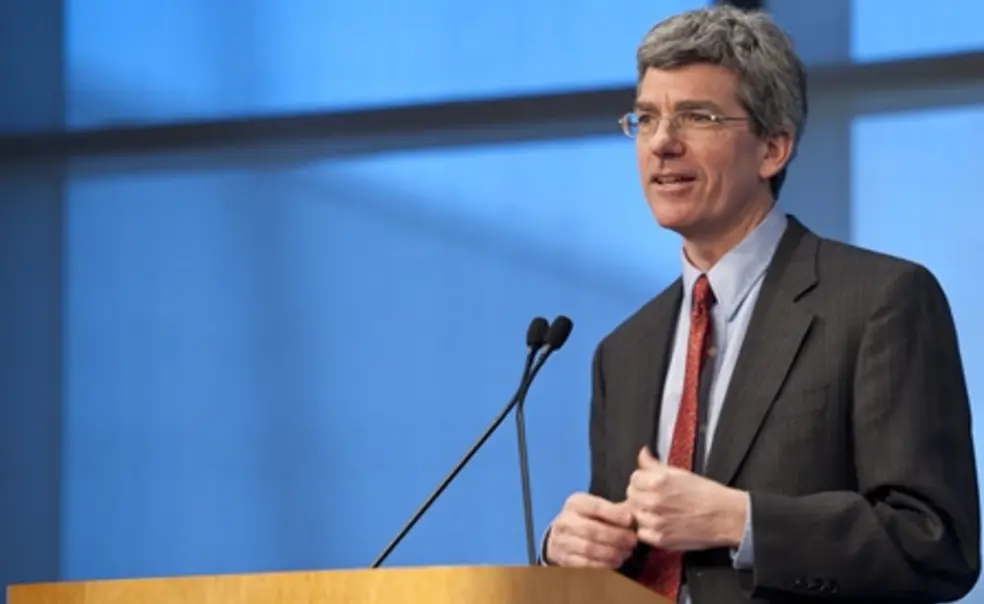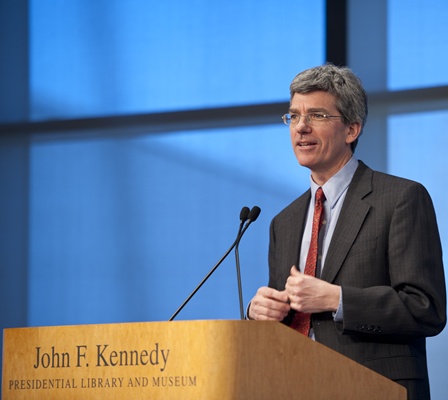Q&A with Tom Putnam *87 on JFK’s Legacy
In 1963 President John F. Kennedy signed the first nuclear test-ban treaty, made a historic visit to Berlin, and delivered a speech that cast civil rights as a moral struggle. He also made a decision he would bitterly regret — he backed a coup in Vietnam that would ensnare the United States in war. Tom Putnam *87, the director of the John F. Kennedy Presidential Library and Museum in Boston, finds such events particularly poignant evocations of a man at the height of his powers, unaware of his impending tragedy. Putnam spoke with PAW in the run-up to the 50th anniversary of JFK’s assassination on Nov. 22.
How is the library commemorating the anniversary?
We are planning a simple ceremony with music and JFK’s own words on the day itself. It will be in the library’s glass pavilion from which you can see the harbor where JFK’s immigrant forebears arrived, the skyline of the city where he was born, and — looking skyward — the new frontiers that he encouraged us to explore. We also will be opening a special exhibit on November 22 titled “A Nation Remembers” that features items from his funeral, like the saddle of the riderless horse that was part of the procession.
You run one of the most-visited presidential libraries. What explains the lingering fascination with JFK?
JFK remains frozen in time. We never got to see him grow old. At the library, we strive to be accurate to the history and not a shrine. He was far from perfect, but I find the more people learn about JFK through recordings and documents, the more respect they have for him.
What was the greatest achievement of his unfinished presidency?
Kennedy felt it was the signing of the nuclear test-ban treaty. But most historians would suggest it was his successful handling of the Cuban Missile Crisis. If you listen to the secretly recorded tapes of his meetings during those famed 13 days, he opts for a less confrontational response than those endorsed by his military advisers. His courage in those meetings played a crucial role in avoiding a global nuclear confrontation at the height of the Cold War.
The museum is running an ad with Kennedy’s quote, “A man may die, nations may rise and fall, but an idea lives on.” What was Kennedy’s most enduring idea?
Kennedy hearkened back to our founding ideals. He once stated: “Democracy is never a final achievement. It is a call to an untiring effort.” We are never going to create a perfect country or a perfect world. But we strive.
Interview conducted and condensed by Eben Harrell ’02













No responses yet